from cage to ecology forest, jeonju zoo is turning over a new leaf. jeon-ju ecology zoo

Recently, as more and more people have started adopting shelter animals, raising awareness to “animal rights,” has been quite popular. In particular, there has been a huge number of stories surrounding “captive breeding,” in zoos, where animals are bred in a defined and controlled area. In fact, this has been an issue also in one of our famous recreational places, the “Jeon-ju zoo,” where animals inevitably are found to be under a huge amount of stress and in certain cases, strange behavioral symptoms.
Fortunately, the city of Jeon-Ju recognized this issue, and implemented a policy to prevent this.
They will be replacing cages to an ecosystem, where the concept of a “watching zoo” will transition into an “experiencing zoo,”a zoo that contains the most appropriate ecosystem for animals.
Although this transition cannot be made immediately, changes will be made step by step, in order to change this zoo into an ecosystem where animals can have a sense of belonging and home. I will introduce you to some of these changes.
“We feel trapped..”
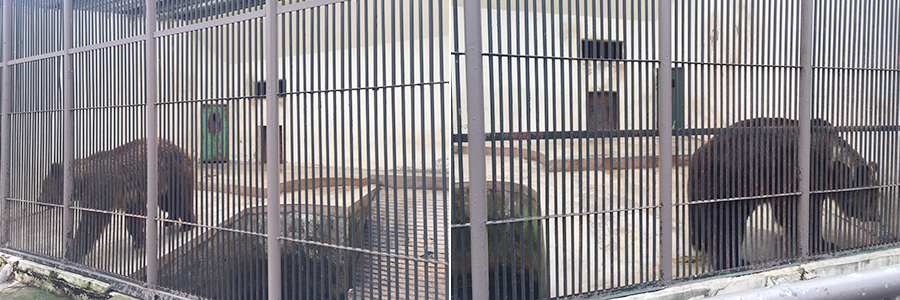
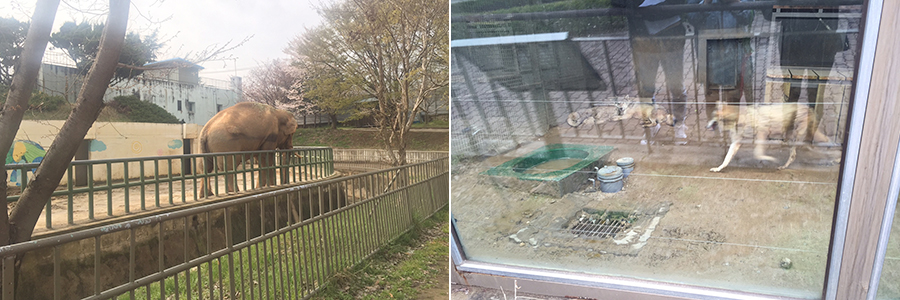
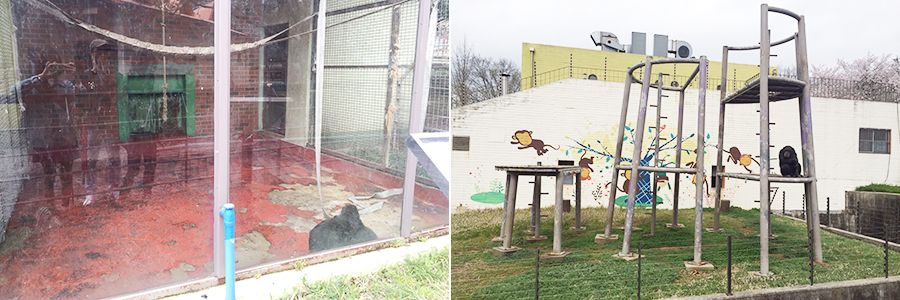
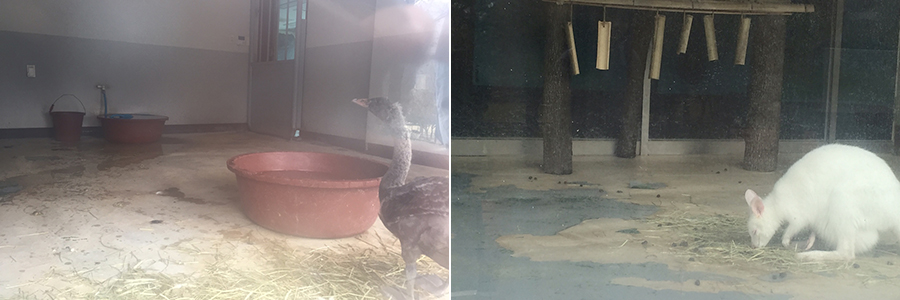
Look at these pictures. Do they look happy? Unfortunately, there is no single hint of “happiness.”
It would be extremely difficult, if not impossible, for anyone to spend his/her life in a cage, staring at a cement floor. Animals, which are meant to spend their lives in the wild throughout the world, feel the same way.
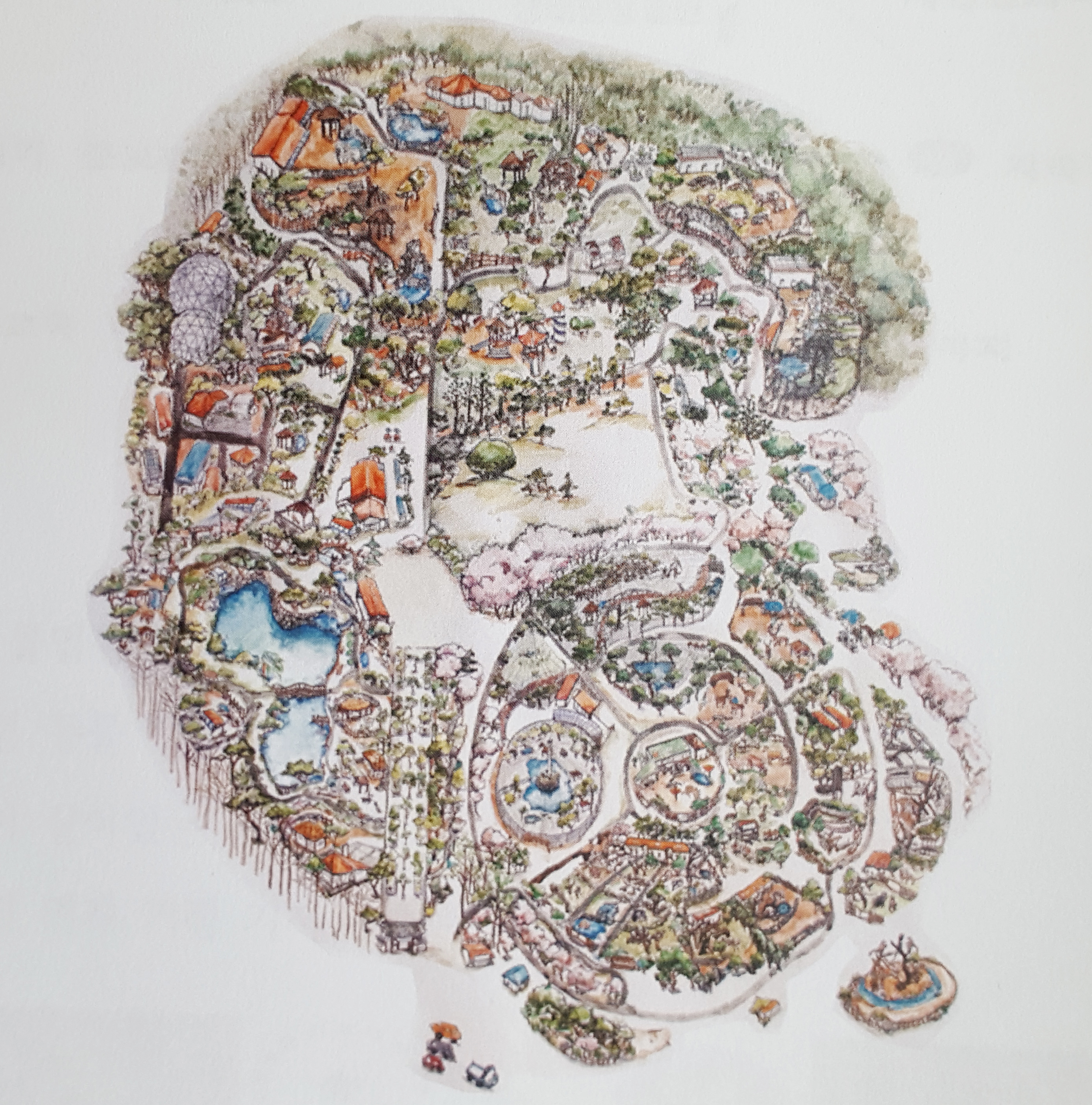
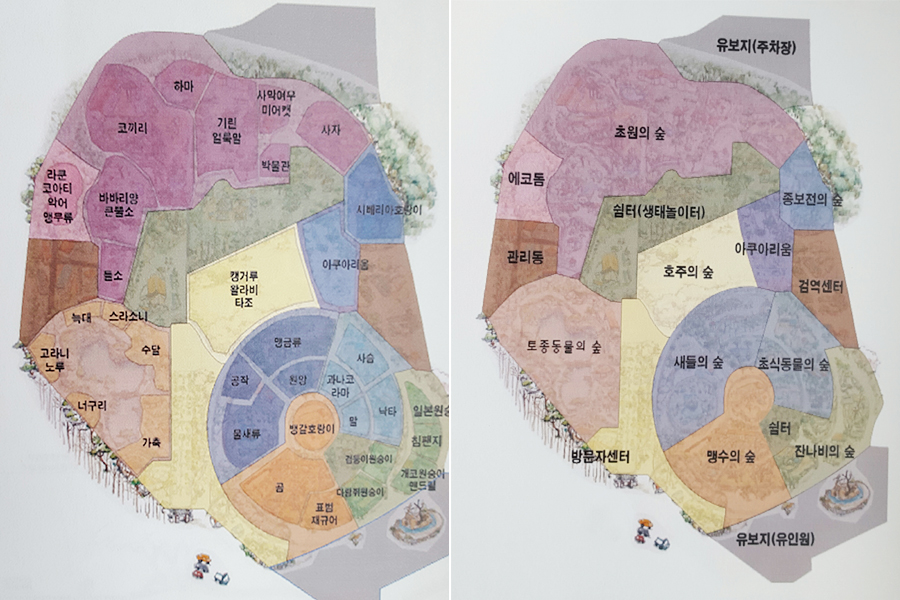
Recognizing these issues, Jeon Ju city taking into consideration the needs of animals, along with improving accessibility and management, through preparing different, but suitable habitats for animals, depending on the their origins.
Development of an “ecosystem” zoo & Animal Rights
易地思之 is a saying, which means ‘Put oneself in another’s shoes.’
Jeon-Ju city is currently planning to incorporate both people’s and animal’s stances by allowing communication between tourists and animals, and removing concrete floors and cages.
Additionally, the city will be planting grass, trees, flowers and various plants to further reflect the animals’ natural habitat. Animals will be freed from their cages, so that they can breed naturally, and make homes for themselves in an uncontrolled approach.
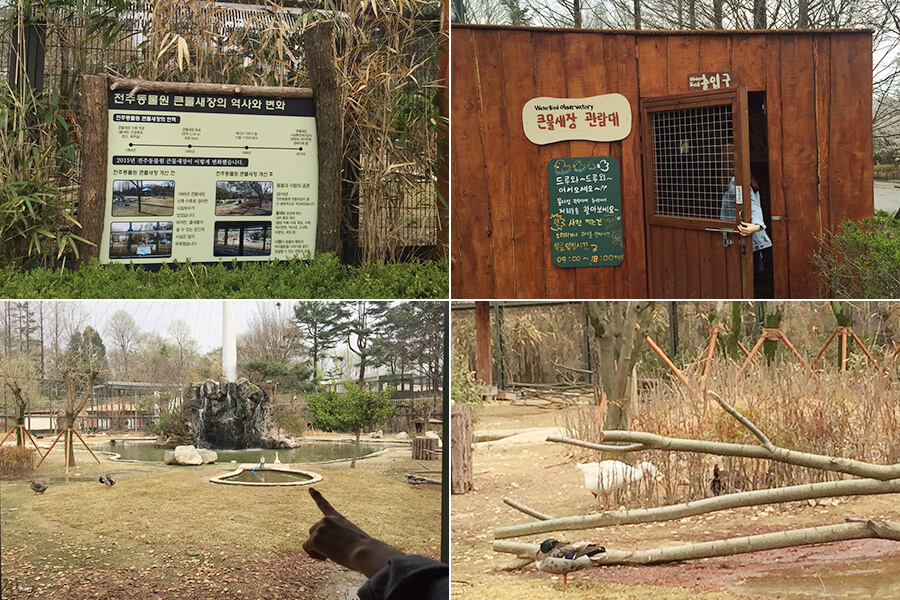
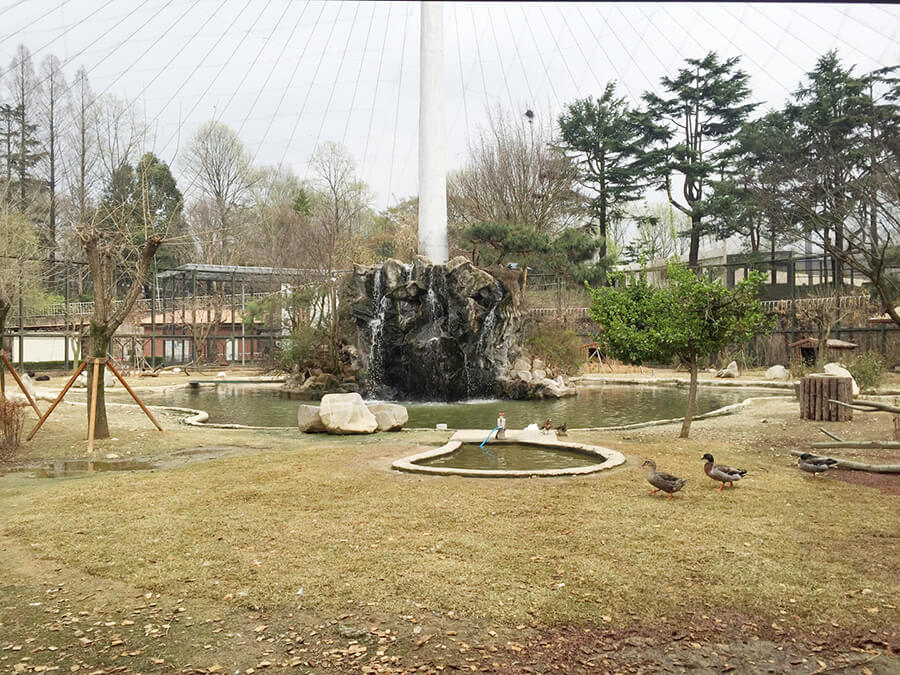
The above picture was taken after improvements were made to the previous water bird cage. I, personally, stood in awe after seeing this! In the new home of water birds, you can get closer to these birds. Currently, there are improvements being made to wild animal hospitals and widening the homes of lions and tigers.
Just by looking at the amazing enhancements made to the water bird’s homes, aren’t you excited to see more?
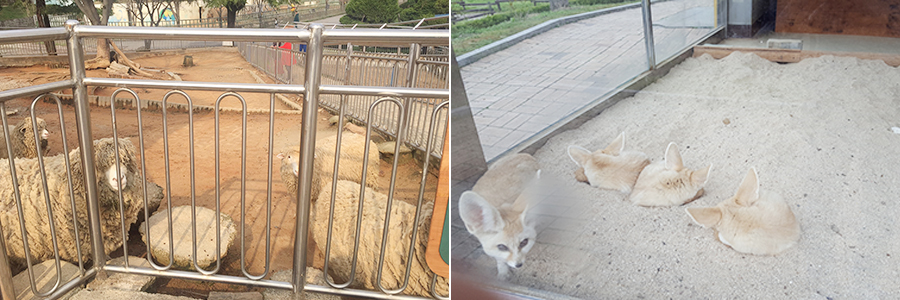
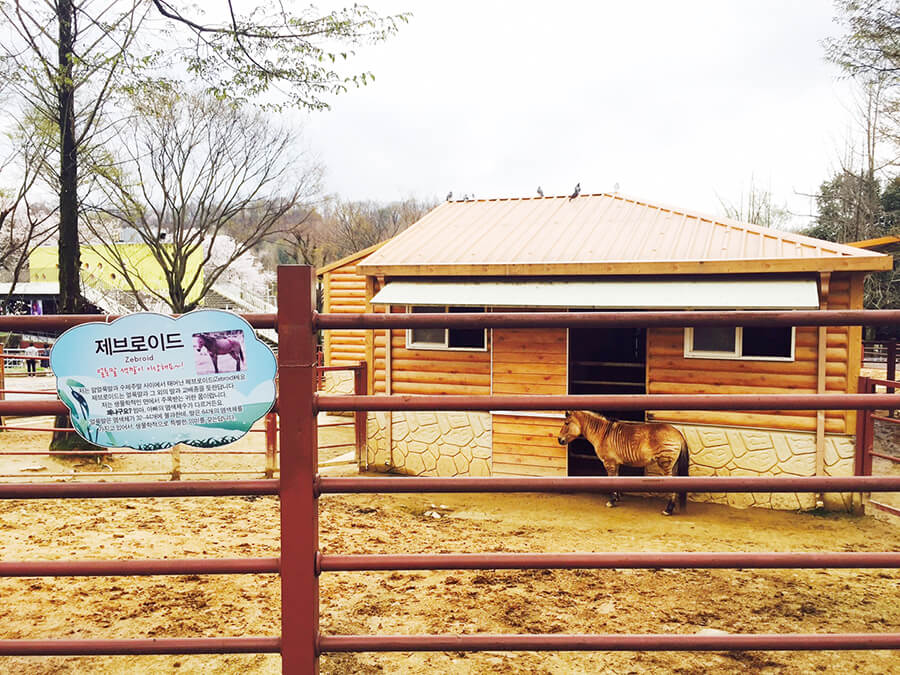
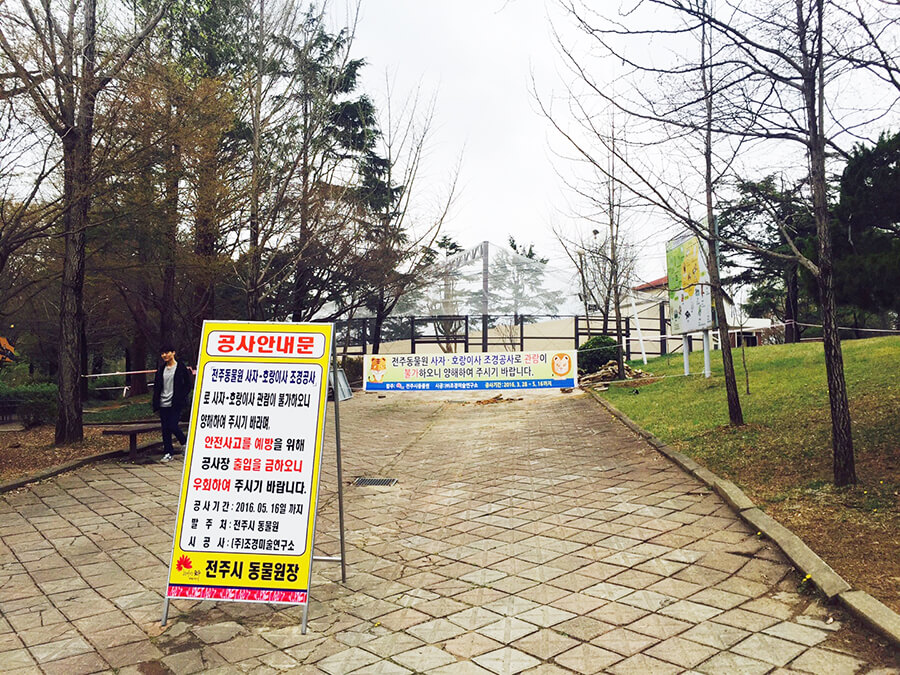
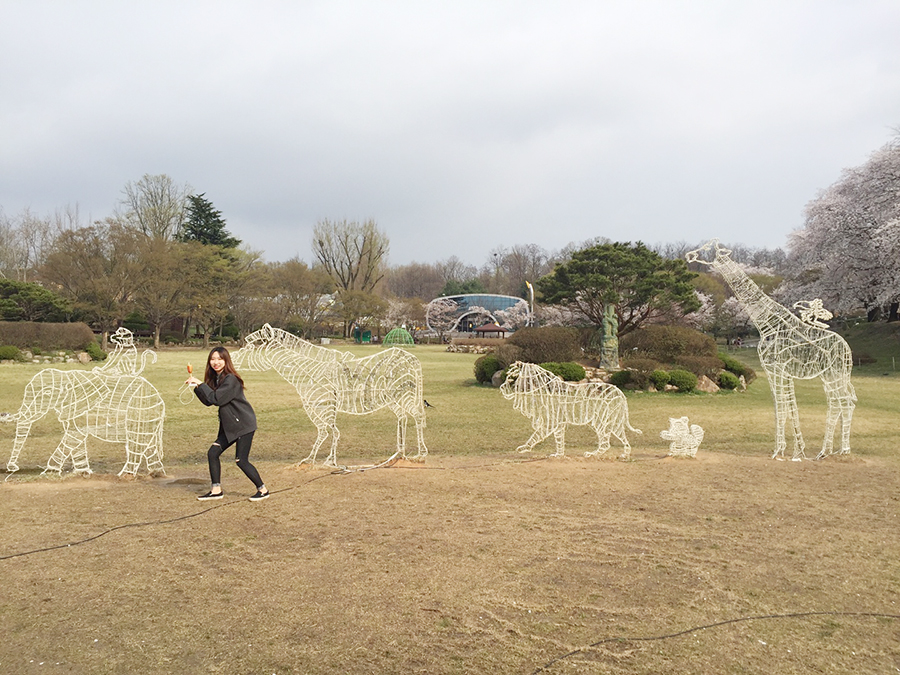
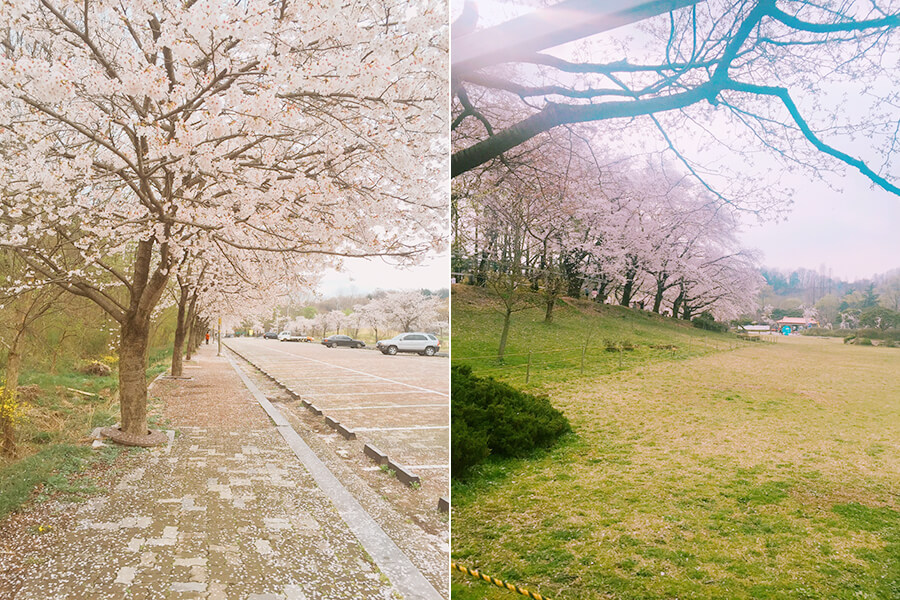
The above pictures show the completed transition made to a part of the zoo. Isn’t this beautiful?
From a human-controlled zoo to an “ecosystem zoo.”
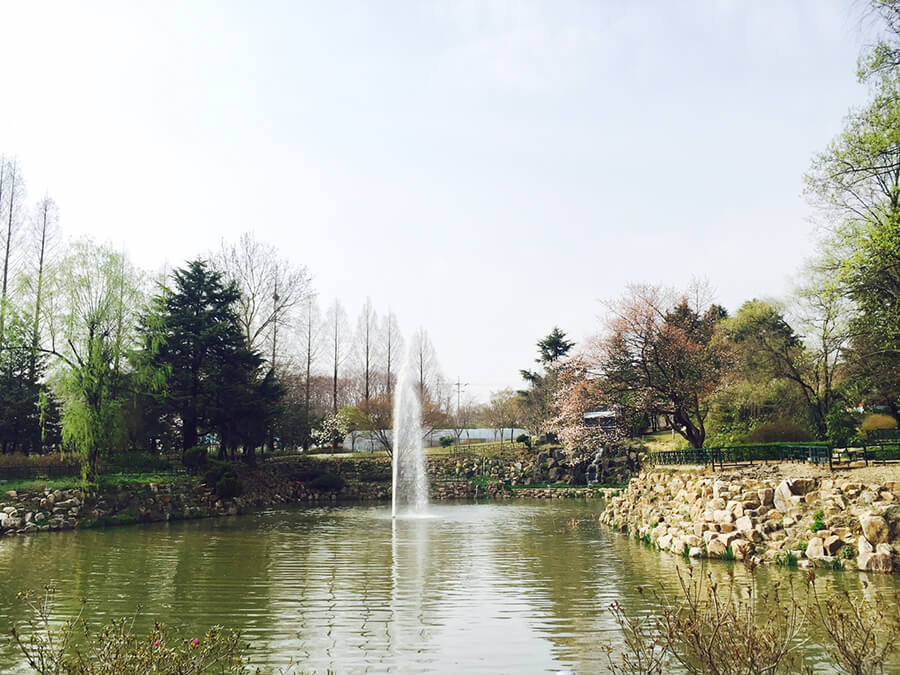
Shall we take a look at the contrast before and after the improvements? Can you notice the change? Do the birds look happy?
Jeonju’s “ecosystem” zoo is continuously undergoing changes and improvements, and the zoo hospital is planned to be completed by April. The zoo will be putting great emphasis on conversation of exotic or endangered species. How fortunate is it for animals to have a hospital that will be able to cure and treat them when they are sick or weak?
Knowing that the health of animals is heavily valued, I feel the transition of the zoo taking place, along with the improvements to animal welfare.
What you you think?
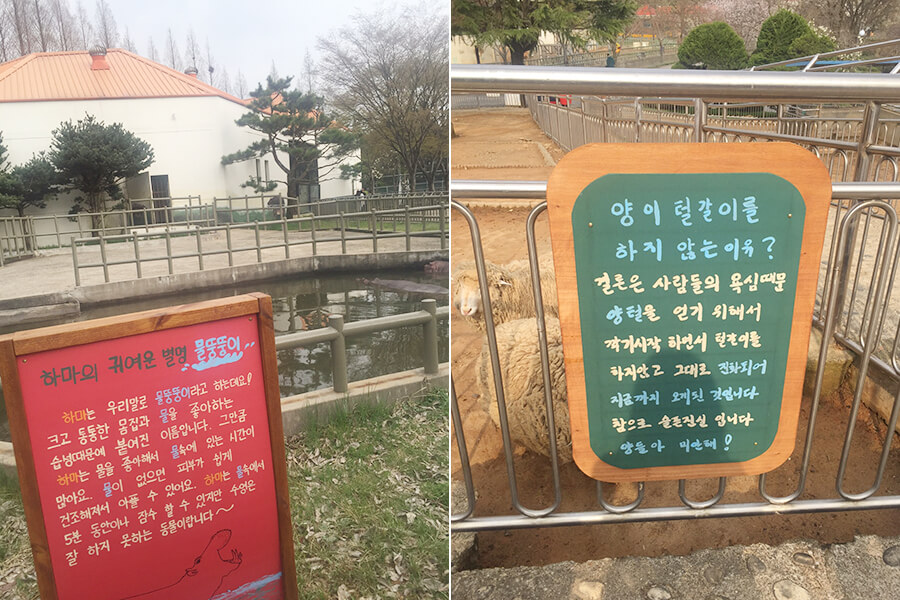

Have you ever seen sign posts with cool information you did not know? These sign posts were made by talented people who wanted to contribute to improving the zoo! If you are also interested in contributing and want to participate, please don’t hesitate and show off your talent!
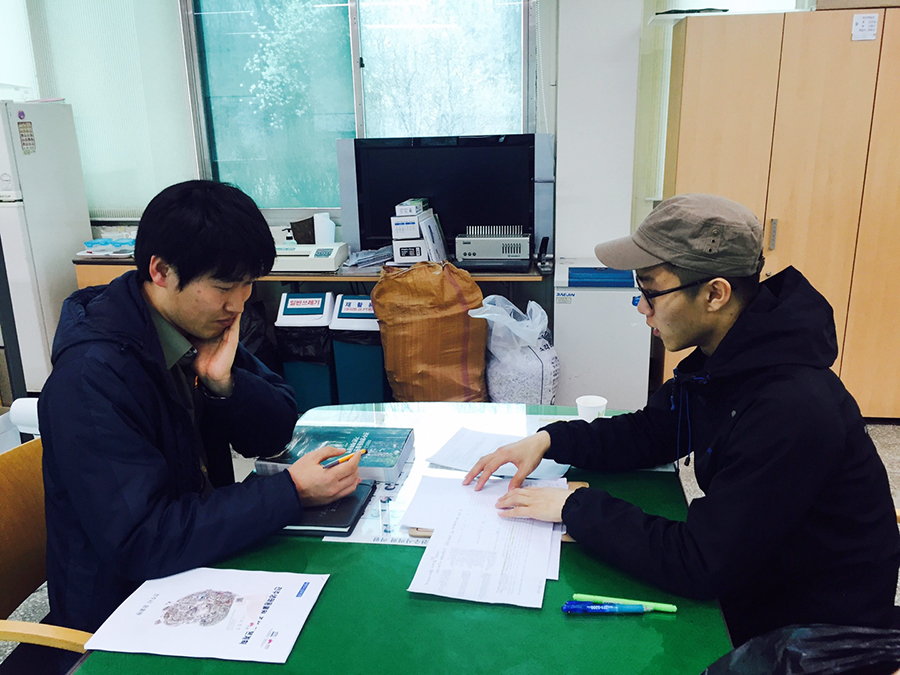
We have met the action officer, Lee Jae-Sung to see more about Jeonju eco zoo. Shall we listen to him for a minute?
We had the chance to interview the Jeon-Ju zoo’s representative, Mr. Jae-Sung Lee. Let’s hear all about it!
Q1) How do you feel about the positive transformation being made to this zoo?
A1) Through this transformation, we will be able to have a different view towards these animals. Instead of viewing these animals with pity, we should treat and view these animals with respect. Also, just as how the improvement of the Jeonju River, created new homes for otters, it is expected that the species conservation will be made for the endangered species. Also, we are expecting to have programs being offered with the ultimate goal of not only learning about animals, but respecting their habitat.
Q2) Did you have any difficulty during the transformation of the zoo?
A2) It is difficult to talk about challenges since we are still at the beginning stage of the business, but there is certainly an area that we must all keep in mind: preserving the zoo and maintaining the balance in order to maintain a sustainable environment for these animals.
Q3) Do you have any comments for the people who will visit the Jeonju ecosystem zoo?
A3) From time to time, there are people who throw away wastes in the zoo. I would appreciate it, if they could think about the basic cultural awareness in the public facilities and behave accordingly since volunteers and staff members are cleaning the environment. Please don’t throw food to the animals. The animals can become sick or have abnormal health states if they accidently intake wrong types of food.
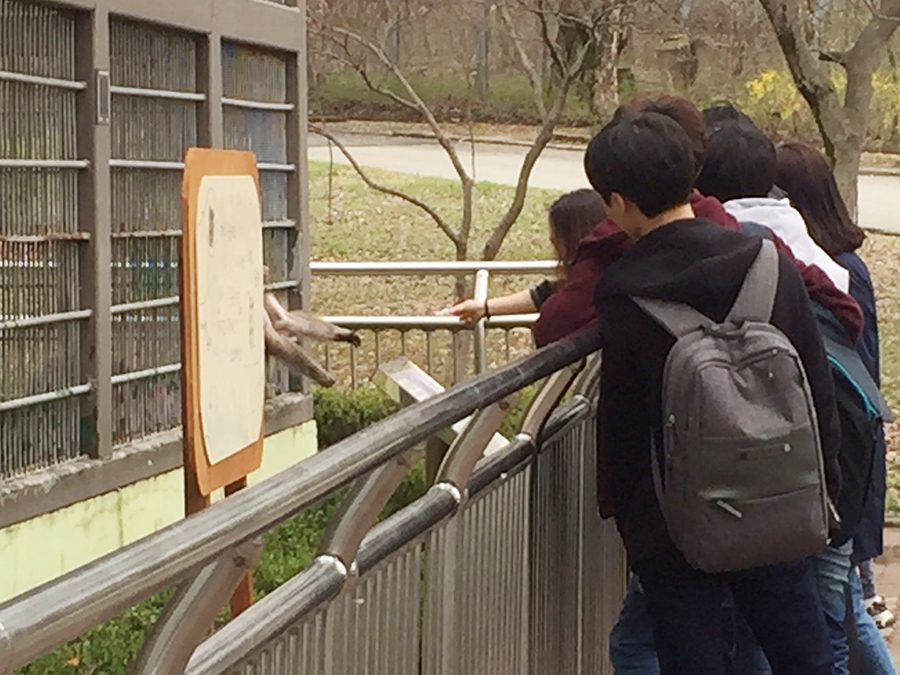
Look at this picture. If you give animals food, animals will reach out to eat the food. This is not only harmful to the animals, but this could be very dangerous for you.
I would also like to emphasize this: Please do not feed the animals.
Once again, let’s think about the following phrase, “put oneself in someone else’s shoes,” and think the animals’ perspective, instead of ours. For the well-being of animals, we always support the transformation of the JeonJu zoo!
-
Elysia Toh
-
Aysha

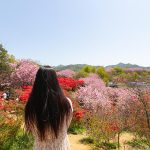
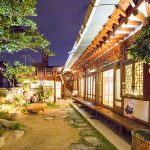
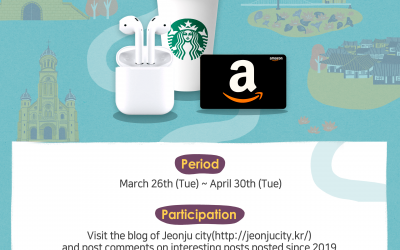
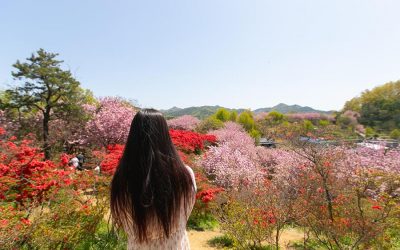


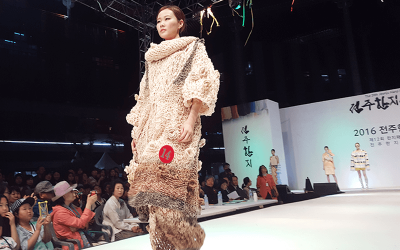
Recent Comments